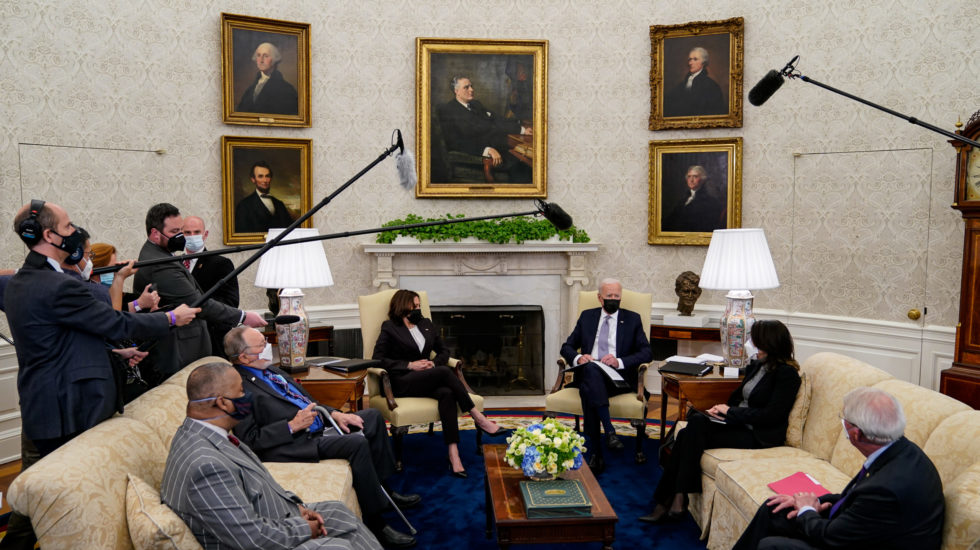Amid skepticism from Republicans about his commitment to bipartisanship, President Biden and Vice-President Kamala Harris sat down Monday with 8 lawmakers at the White House to discuss his $2.25 trillion infrastructure plan. The group included four Republicans, Senators Deb Fischer of Nebraska and Roger Wicker of Mississippi, and Reps. Garret Graves of Louisiana and Don Young of Alaska. Early indications were the meeting was encouraging, but according to comments Wicker made to reporters after, it seems the White House might be wasting its time seeking bipartisan support.
Repealing at least part of the Trump Tax Cut is one of the ways the WH planned to pay for the legislation. That, combined with the sheer scope of Biden’s plan — which includes proposals to address climate change, broadband and other forward-thinking ideas that republicans oppose — will be a huge hill to climb.
While Fischer and Wicker are members of key committees such as Commerce, Science, and Transportation, a number of notable Republicans were not at the meeting. A key Democrat wasn’t in attendance either, West Virginia Sen. Joe Manchin. His moderate vote is seen as essential if Biden has any hopes of passing the infrastructure package by way of the Senate reconciliation process. Another key member of the Senate, Lisa Murkowski of Alaska, the rare Republican who has expressed a willingness to work with the Biden Administration, was also missing.
The absence of some of these senators could be a sign that Biden and his staff view negotiations over the ambitious legislation as a lengthy process. The Washington Post reports, “The session, which a White House official said was the first of several Biden will host this month, marked the informal beginning of months of arm-twisting and vote haggling on Capitol Hill to line up support.”
Biden has made a point of saying he would like to pass the bill with bipartisan support, unlike the $1.9 trillion COVID bill, and he has stated he is open to compromise on provisions like the corporate tax rate. He repeated his position today.
But the administration has been busy rewriting the definition of bipartisanship in this era of hyper-partisan politics.
Ultimately, President Biden seems more concerned with getting republican voters to support his agenda than GOP representatives in Washington. As he said in Pittsburgh recently,
“Everybody said I had no bipartisan support. The overwhelming bipartisan support were Republican — registered Republican voters.”



